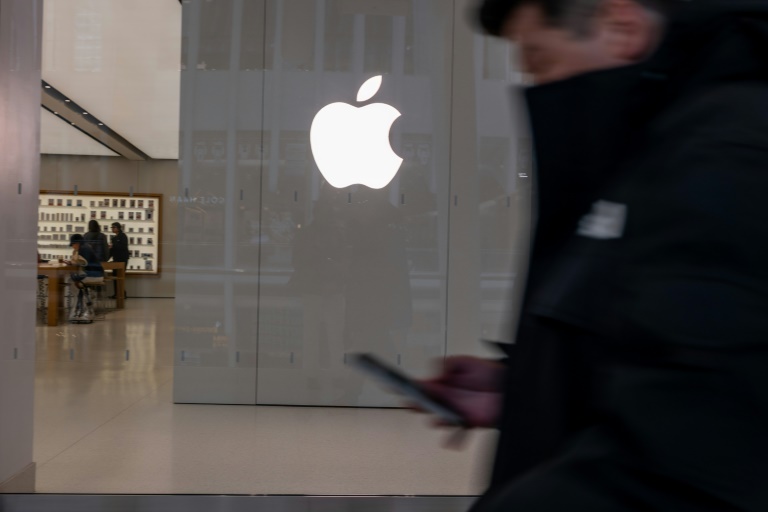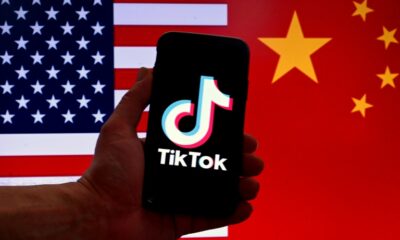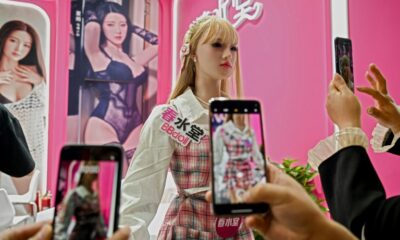Apple chief Tim Cook on Thursday promised the tech titan has artificial intelligence news in store as shares suffered despite sales growth in the final three months of last year.
The iPhone maker reported revenue was up slightly from the same quarter a year earlier, as money brought in from services and digital content set a new record.
But worries surrounding the China market cast a pall on the news.
The company said its net sales in Greater China — including mainland China, Hong Kong, and Taiwan — declined from a year ago to $20.8 billion in the latest quarter.
Shares of the iPhone maker slumped more than 3 percent in after-hours trading.
Apple chief Tim Cook played down the slowed sales in China, saying on an earnings call that iPhones remained among the most popular smartphones in China.
“We’ve been in China for 30 years and I remain very optimistic about China over the long term,” Cook said.
– Billions of users –
Cook announced that the number of Apple devices being used around the world reached a new high of 2.2 billion and that it took in a record-setting amount of money from services and subscriptions.
Apple logged $119.6 billion in sales fueled by iPhone sales in the holiday season quarter, up two percent from the year-ago period.
For the quarter, its profits came in at $33.9 billion, with diluted earnings per share above expectations at $2.18.
The company’s closely watched iPhone sales came in at $69.7 billion, an improvement from the same quarter in 2022 as well.
Data from Counterpoint Research released Thursday showed that Apple’s share of the smartphone market reached the highest since late 2020 in the final three months last year.
This was largely due to a rebound from previous Covid-19 related factory shutdowns, causing production disruptions.
Counterpoint added that the final months in a year are typically a strong period for Apple, with iPhone sales boosted by holiday demand.
– Spacial computing era? –
Looking ahead, investors are eyeing the performance of its highly anticipated Vision Pro mixed reality headset, which will be launched in the United States on Friday.
Cook touted the Vision Pro as a “revolutionary device” that marked an era of “spacial computing.”
“We can’t wait for people to experience the magic for themselves,” Cook said of Vision Pro getting into Apple stores in the United States.
He said Vision Pro would become available in other countries later this year.
“As we look ahead, we will continue to invest in these and other technologies that will shape the future,” Cook said.
“That includes artificial intelligence (AI), where we continue to spend a tremendous amount of time and effort.”
– Apple generative AI? –
Cook promised that Apple would share details of its artificial intelligence (AI) work later this year.
Apple rivals including Google and Microsoft are vying to be leaders in AI, a technology poised to transform work, leisure, health care and more.
Apple is expected to put its spin on AI computing the same way it put its world-changing spin on the smartphone and the personal computer.
Apple already uses AI in its camera, Siri digital assistant and more.
While Apple appears to be lagging behind in the AI race, it is likely quietly designing its own computer chip for “AI Macs,” according to analysts.
“We have a lot of work going on internally,” Cook said of AI on the earnings call.
“We’ve got some things that we’re incredibly excited about.”

 Business5 months ago
Business5 months ago
 Business4 months ago
Business4 months ago
 Events3 months ago
Events3 months ago
 People4 months ago
People4 months ago
 Events6 months ago
Events6 months ago
















